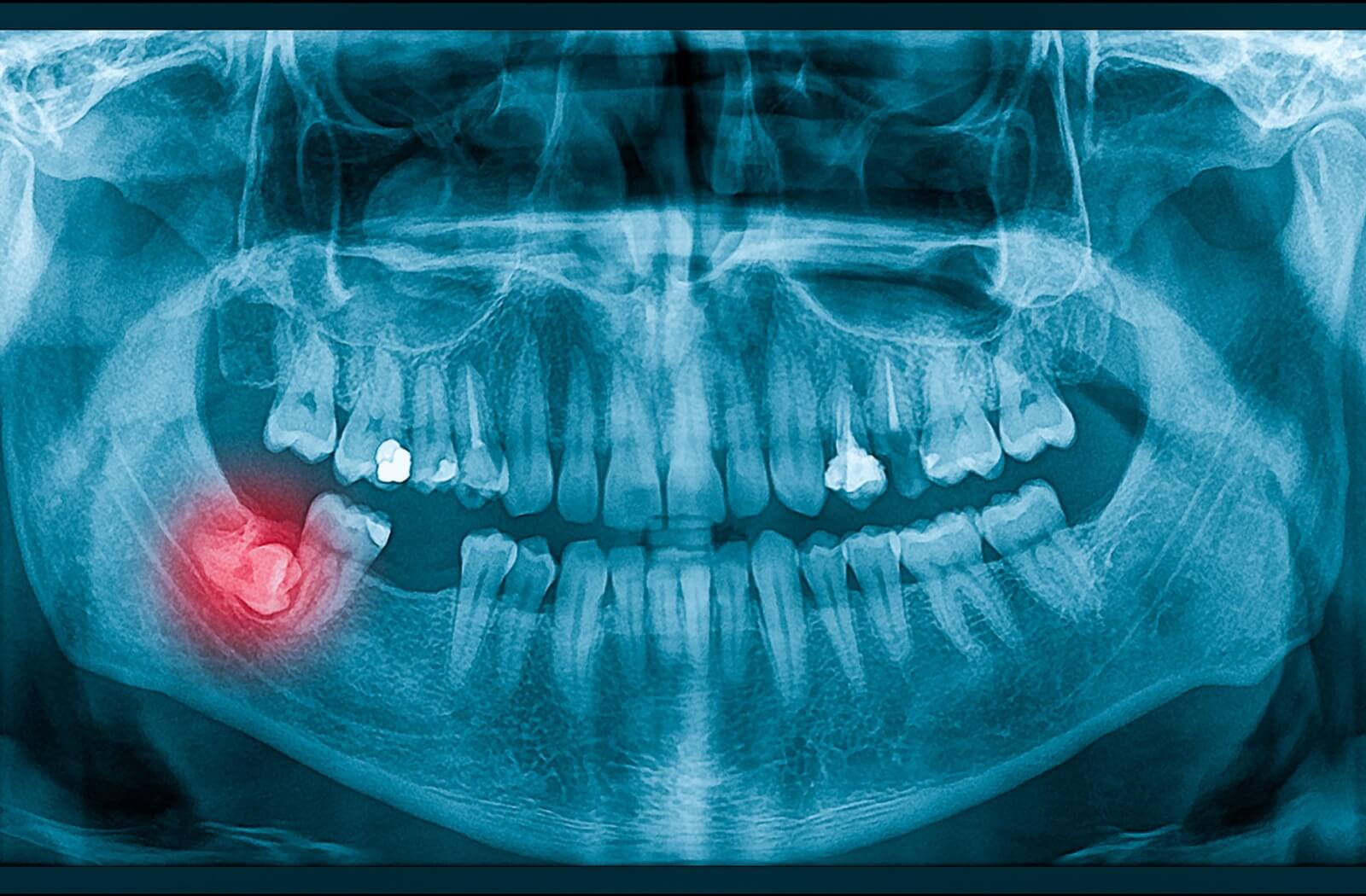
Wisdom teeth often feel like an unwelcome surprise. Just when you think your smile is all grown up, they start making their debut.
Typically, wisdom teeth emerge between the ages of 17 and 25. But for some, they may appear earlier—or even much later. In some cases, a person might not develop them at all.
What Are Wisdom Teeth, & Why Do We Have Them?
Also known as third molars, wisdom teeth are the last set of molars to grow at the back of your mouth. Most people have four—two on the top and two on the bottom—but it’s not unusual to have fewer or even none.
So, why the name “wisdom” teeth? They appear much later than other teeth, typically between the ages of 17 and 25, a time when people are presumably “wiser” than as a child. Historically, these molars helped our ancestors chew tougher foods like roots, nuts, and raw meat. But thanks to modern diets and smaller jaw sizes, wisdom teeth have become less of a necessity.
Today, they're more famous for causing dental drama than for aiding digestion.
When Do Wisdom Teeth Grow In?
Most wisdom teeth typically start to grow between 17 and 25 years old. However, this isn’t a hard-and-fast rule. Some people may notice signs of growth earlier, while others might not experience any changes until their late twenties. Some lucky people might never grow wisdom teeth at all.
If you or your teen are in the “prime age range” for wisdom teeth, staying alert to the signs can help you make the right decisions for their care.
5 Signs Your Wisdom Teeth May Be Growing In
Here’s what to look for if you think your wisdom teeth are making their move:
Persistent Jaw Pain or Pressure
One of the first indicators that wisdom teeth are coming in is discomfort at the back of the mouth. This pressure can radiate into the jaw, ears, or even your head. If the pain is sharp or becomes unbearable, it could be a sign that the tooth is impacted—meaning there isn’t enough room for it to grow properly.
Swollen or Sensitive Gums
As your wisdom teeth push through the gums, it can cause swelling or tenderness. You may notice redness, lumps, or general discomfort when chewing or brushing. To prevent infection, maintaining good oral hygiene is essential—especially around the area where the teeth are emerging.
Headaches or Earaches
Those annoying headaches or earaches may not be just from stress. The pressure from emerging wisdom teeth can sometimes affect nearby nerves and muscles, resulting in tension headaches or even ear pain.
If these symptoms persist with no other obvious cause, it’s worth checking in with your dentist to rule out other potential issues.

Crowding or Teeth Shifting
If your once-straight teeth suddenly start feeling crowded, your wisdom teeth might be the culprit. As they push through, they can shift or even damage the teeth that are already in place
Parents of teens with braces should be on high alert for this sign. Early detection can prevent wisdom teeth from undoing all those months (or years) of orthodontic work.
Persistent Bad Breath or an Odd Taste
Partially erupted wisdom teeth can create pockets where food and bacteria can get trapped, leading to bad breath or an unusual taste in your mouth. If brushing doesn’t seem to help, it could be a sign that wisdom teeth are involved.
Addressing this early can stop minor gum issues from escalating into infections or cavities.
When Is It Time to Consider Wisdom Tooth Removal?
It’s important to know that not every wisdom tooth is a troublemaker. If your wisdom teeth grow in completely, align nicely with the rest of your molars, and don’t cause discomfort, they might get to stay.
However, there are situations where extraction might be the best option:
- Impaction: When wisdom teeth can’t fully erupt due to lack of space, causing them to push into neighbouring teeth or remain trapped in your jaw.
- Crowding: If new teeth shift and misalign your existing ones.
- Decay or infection: Partially erupted teeth are harder to clean, leading to higher risks of cavities or gum infections.
- Pain or pressure: Persistent discomfort that disrupts daily life.
In most cases, wisdom tooth extraction is a routine procedure with a relatively quick recovery. Dentists often recommend removing them sooner rather than later to avoid complications that can arise later in life.
How to Care for Growing Wisdom Teeth
If your wisdom teeth are coming in and not causing too much trouble, here are some tips to help manage the process:
- Brush and floss: Dedicate extra care to the back of the mouth to keep your gums clean and bacteria-free.
- Rinse daily: Use antiseptic mouthwash or saltwater rinses to soothe gums and prevent infections.
- Visit the dentist: Regular dental check-ups allow your dentist to monitor the growth of wisdom teeth through x-rays.
- Monitor changes: Look for signs like increased pain, swelling, or difficulty opening your mouth, as these may signal potential complications.
What to Do Next?
Wisdom teeth might be the wildcard in your dental health, but with the right care and monitoring, they don’t have to be a problem.
If you or your teen are experiencing any of the signs mentioned above—or if you have questions about wisdom teeth in general—it’s best to book an appointment with a dental professional. Early intervention can make all the difference between keeping your smile healthy and avoiding more serious issues down the road.
At Cool Dental, we offer wisdom teeth evaluation and extraction if needed. Reach out to our team if you have any questions, we are here to help keep your teeth stay healthy.